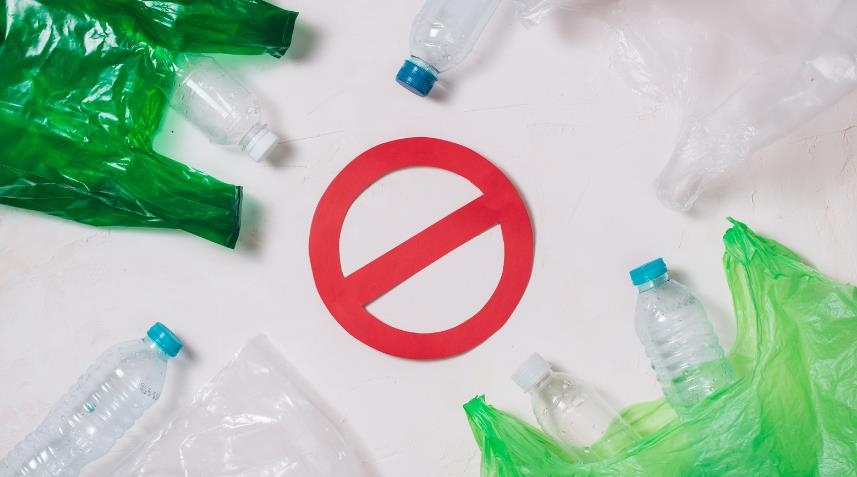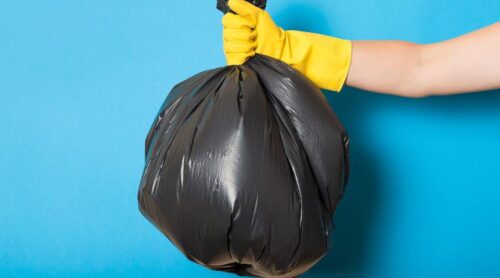
Things You Really Should Stop Recycling
We all want to do our part in reducing waste and preserving the planet. That’s why we diligently separate our plastics, metals, and paper products for recycling. But here’s the thing: not everything that seems recyclable actually is! In this eye-opening blog post, we’re going to uncover some surprising items that you really should stop tossing into your recycling bin.
Things You Really Should Stop Recycling
Plastic Bags and Wraps
Did you know that plastic bags and wraps can be recycled? Well, before you start tossing them into your curbside waste recycling bin, hold on a second! While there are a few lucky communities in the US that can recycle these items through curbside pickup, the vast majority of us need to take a different route.
Instead of adding them to your regular recycling, look for the Store Drop-Off label and bring those bags and wraps with that label to your local grocery store. That’s right – they can be recycled at the same place where you drop off those pesky plastic shopping bags. You might wonder why it’s such a big deal if we put these items in our curbside bins anyway.

Here’s the lowdown: when plastic bags and wraps end up at recycling facilities, they tend to wrap themselves around equipment like mischievous little gremlins. And trust me, this is no fun for workers who have to stop the machines and climb on top of them just to cut out those tangled bags. As if that wasn’t enough hassle already, these bagged recyclables often end up being landfilled instead.
So let’s save ourselves some trouble (and some landfill space) by doing things the right way. Check for that Store Drop Off label on your plastic bags and wraps, gather them up along with your other shopping bags, and make a trip to your local grocery store for proper recycling. It may seem like an extra step but remember – every small action counts when it comes to protecting our planet!
Small metal bits
Small metal bits, such as soda can tabs and aluminum candy wrappers, may seem harmless when it comes to metal recycling. After all, they’re made of recyclable materials. However, their small size can cause big problems for recycling machinery.
These tiny pieces often go unnoticed during the sorting process and end up jamming the equipment. Imagine the frustration of workers who have to stop the machines just to remove these pesky bits! It’s a hassle that could easily be avoided.

To prevent this issue, there are simple steps you can take. For soda tabs, keep them attached to the can or drop them inside before disposing of it in your recycling bin. This ensures that they won’t get lost among other items and cause trouble later on.
As for aluminum foil scraps, save them until you have enough to form a large ball or place them inside an aluminum can and crimp the top shut. By doing so, you create a larger piece that is less likely to cause issues during the recycling process.
Food Residue
To ensure the integrity of the recycling process, it is essential to clean and empty your food and beverage containers before recycling them. You run the danger of contaminating an entire truckload of recyclables when you throw a wine bottle or peanut butter jar with leftover residue into the recycling bin.
Even though containers don’t need to be spotless, it’s essential to give them a good rinse and wash if they’re greasy. This simple step helps prevent any remaining food or liquid from seeping onto other materials during transportation and processing.

To make this task easier, consider using a compostable bottle brush. It’s specifically designed to reach those hard-to-clean spots in jars and bottles, ensuring that all traces of residue are removed effectively.
By taking these extra precautions, you can help maintain the quality of recycled materials and contribute to a more efficient recycling system overall. So next time you’re preparing items for recycling, remember to clean them thoroughly – every little effort makes a difference!
Bagged Recyclables
For the vast majority of us, though, putting our recyclables in plastic bags is a big no-no. Why? Because most recycling facilities can’t process items that are bagged up like this. Instead of being recycled, those bags end up in the landfill. So all your good intentions and efforts to recycle properly go to waste.

But don’t worry! There’s still a solution that allows you to keep things organized without sacrificing proper recycling practices. Instead of using plastic bags, try using open paper bags instead. The beauty of paper bags is that by the time they reach the recycling facility, the recyclables will have tumbled out of the bag naturally during transportation and sorting processes.
Diapers
Ugh, those darn diapers. When it comes to taking care of our children, they are a necessary evil. Nevertheless, recycling them is one thing you should really not do with them. Certainly, more people than you’d think put soiled baby diapers in the recycling bin, believe it or not. I’ll tell you right now that it’s a bad idea.

Imagine being a worker at a recycling facility and seeing those soiled diapers coming into your building. Not exactly what you want smooshing up against your precious cardboard boxes, right? No one wants that!
But here’s the thing – even clean baby diapers aren’t recyclable either. They’re made of multiple woven materials that simply can’t be recycled. So no matter how tempted you may be to toss those unused ones in the recycling bin, please resist the urge.
Paperboard Boxes
Paperboard boxes are a common item that many people assume can be recycled without issue. However, when it comes to certain types of paperboard boxes, recycling becomes more complicated. Freezer food boxes and ice cream cartons, for example, often contain a plastic coating to prevent freezer burn. While this may be helpful in keeping your frozen treats fresh, it actually hinders the recycling process.

The same goes for gable-topped milk and juice cartons. These containers are made from a combination of paper and plastic to prevent leaks. Additionally, shelf-stable cartons sold in rectangular boxes typically have additional layers of plastic and aluminum.
While some municipalities do accept these types of cartons for recycling, many do not.